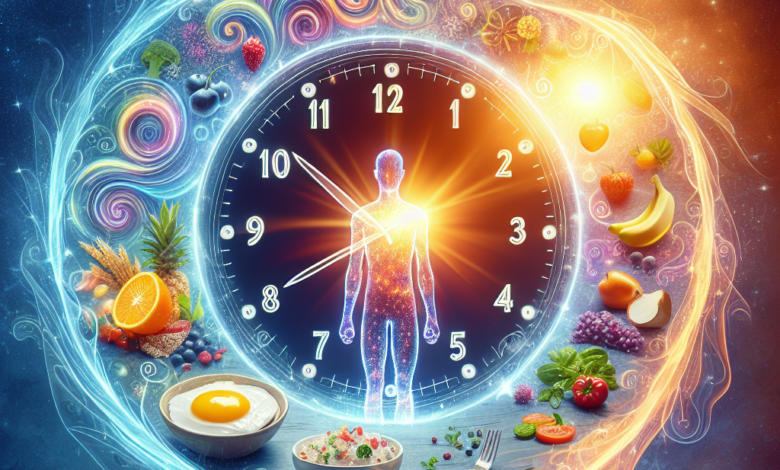Boost Your Energy: How Intermittent Fasting Can Revitalize Your Life

In a world that constantly demands our attention and energy, many are on the hunt for effective methods to enhance stamina and focus. Enter intermittent fasting (IF), a dietary approach that has garnered significant attention for its potential health benefits, including boosting energy levels. But how does intermittent fasting revitalize your life? Let’s explore its principles, benefits, and practical tips to successfully incorporate it into your routine.
Understanding Intermittent Fasting
Intermittent fasting is not so much about what you eat but rather when you eat. It involves cycling between periods of eating and fasting, allowing your body to enter a state of repair and rejuvenation. The most common methods include:
- 16/8 Method: Fast for 16 hours and eat during an 8-hour window.
- 5:2 Diet: Consume a normal diet five days a week and limit calorie intake to around 500-600 calories on two non-consecutive days.
- Eat-Stop-Eat: 24-hour fasts once or twice a week.
How Intermittent Fasting Boosts Energy Levels
-
Enhanced Cellular Repair: During fasting, your body initiates autophagy, a process where it cleans out damaged cells and regenerates new ones. This cellular repair can lead to increased energy as your body functions more efficiently.
-
Improved Insulin Sensitivity: Intermittent fasting helps lower insulin levels and improve insulin sensitivity. This leads to better blood sugar regulation, reducing energy crashes and maintaining steadier energy levels throughout the day.
-
Increased Fat Oxidation: With a lower reliance on glucose for energy, your body becomes more adept at burning fat. This process can provide a sustainable source of energy, especially during fasting periods when glycogen stores are depleted.
-
Mental Clarity: Many people report improved cognitive functions during fasting. The production of brain-derived neurotrophic factor (BDNF), a protein that promotes neuron growth, is often elevated. This can translate into better focus, heightened creativity, and the overall sharpness of mind.
- Hormonal Balance: Fasting can lead to increased levels of norepinephrine, a hormone that enhances energy expenditure and leads to fat loss. A well-functioning hormonal system contributes not just to physical energy but also to emotional well-being.
Practical Tips for Implementing Intermittent Fasting
-
Start Slow: If you’re new to intermittent fasting, begin with a manageable window, such as the 12/12 method. Gradually extend the fasting period as your body adapts.
-
Stay Hydrated: Water is your best friend during fasting. Hydration is crucial for maintaining energy levels and supporting overall health. Herbal teas and black coffee can also be consumed during fasting hours.
-
Focus on Nutrient-Dense Foods: During eating windows, prioritize whole foods that are rich in nutrients. Include plenty of vegetables, lean proteins, healthy fats, and complex carbohydrates. This will ensure that you have sufficient energy stores for your busy lifestyle.
-
Listen to Your Body: Everyone’s response to fasting can vary. Pay attention to how you feel during fasting periods and adjust accordingly. If you experience fatigue or dizziness, it might be wise to reconsider your approach.
- Stay Active: Incorporating regular physical activity can complement the benefits of fasting. Exercising during your eating window can help maximize energy levels and enhance fat burning.
Potential Challenges and Considerations
Intermittent fasting isn’t suitable for everyone. Individuals with certain medical conditions, pregnant or breastfeeding women, and those with a history of eating disorders should consult with a healthcare professional before embarking on this journey. It’s essential to ensure that the approach aligns with personal health needs.
Conclusion
Intermittent fasting can be a game-changer for those seeking to boost their energy levels and overall vitality. By adopting this method, many experience enhanced mental clarity, improved physical performance, and a deeper connection to their health. Like any lifestyle change, it takes time to adapt, but with patience and mindfulness, intermittent fasting can truly revitalize your life. So why not give it a try? Your body (and mind) may thank you later!
